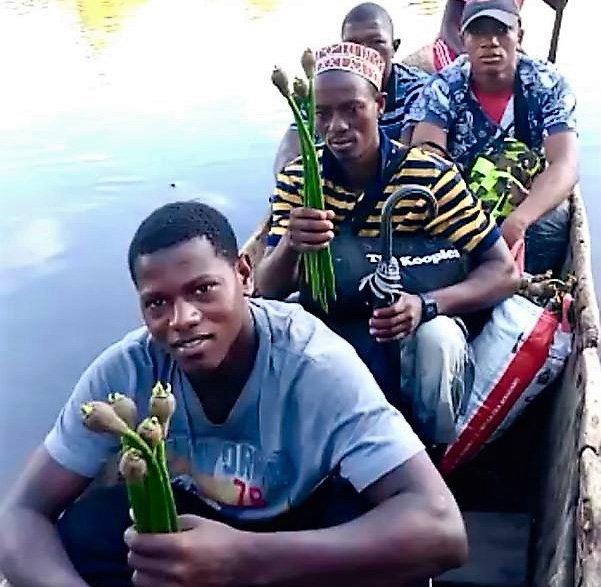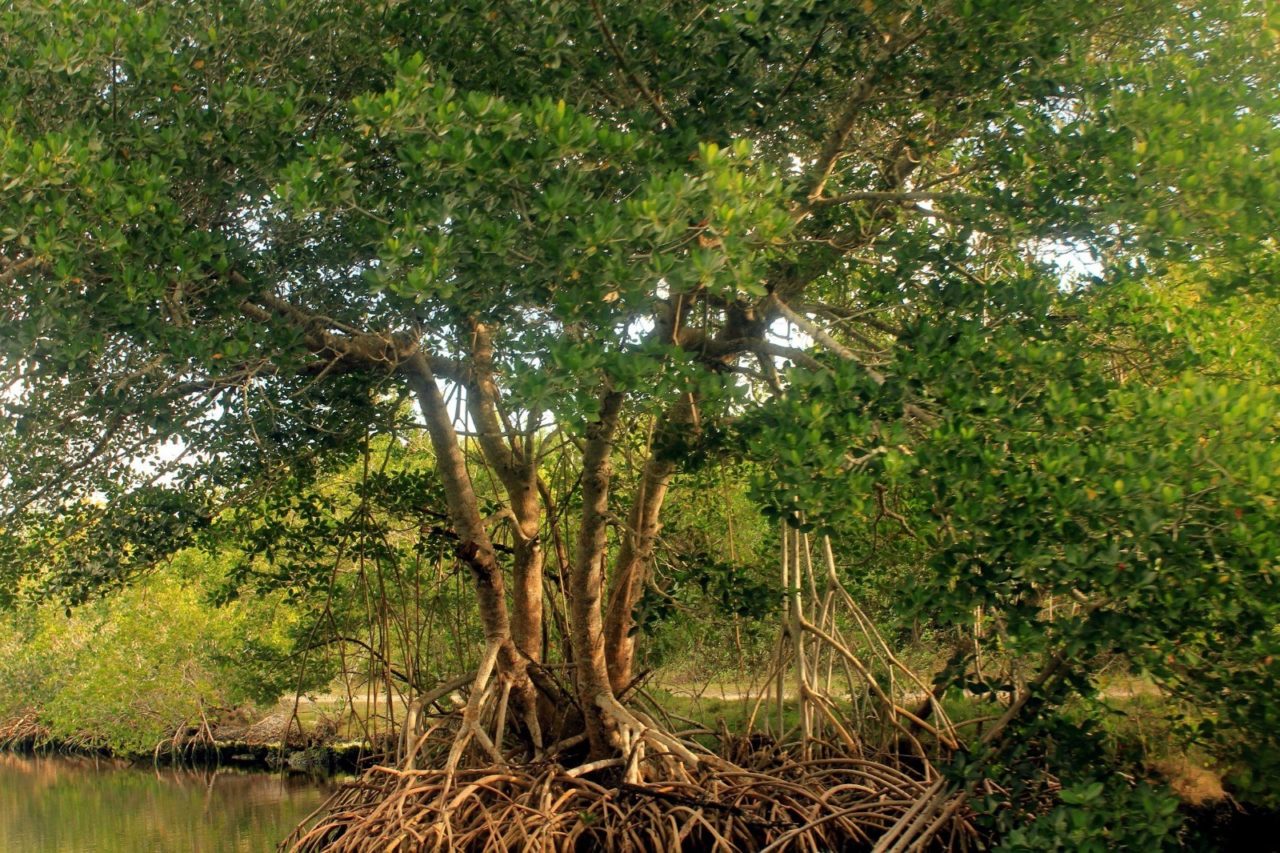 IT’S TIME FOR 100,000 MIGHTY MANGROVES FOR COASTAL RESTORATION IN ZANZIBAR
IT’S TIME FOR 100,000 MIGHTY MANGROVES FOR COASTAL RESTORATION IN ZANZIBAR
Protecting fishers, farmers and the coastline of Pemba
Mangrove trees, with their ability to grow in marshy coastal waters, are quite literally the roots of the ocean. Three-quarters of all tropical fish species are born in these nutrient rich habitats, which also shelter coral reefs (Living Oceans Foundation, 2016). Mighty mangroves are one of our best defenses against climate change. Their dense roots protect and restore the shore, preventing erosion and flooding and defending against coastal storms. Mangrove forests sequester up to 10 times more carbon per hectare than terrestrial forests, and may hold up to 22 billion tons of carbon in their soils - that's over two years of global emissions (Project Drawdown, 2017)! We are losing these mighty forests rapidly, with over 50% loss in some regions since 1970 (Friess et al, 2019). For Zanzibar's coastal communities, mangroves are life giving. They support incomes and put food on the table. That is why the people of Pemba are rallying together to restore their mangrove forests.
Necessity
Coastline protection for community members in Mtangani, Pemba, Zanzibar.
Activity
A local co-operative plants 100,000 mangrove seedlings along the coastline in Pemba.
Countable effort
Establishment of mangrove forests along the coast of Pemba.
Result
Protection from erosion and flooding, restoration of coastal fish ecosystems, a line of defense against coastal storms, and job creation in planting.
Systemic effect
Increased sustainability of coastal livelihoods.
Background
As sea waters rise and coastal storms become more frequent and severe, the Tanzanian islands of Zanzibar are already experiencing climate change in very real ways. People's lives in coastal communities are intricately linked with coastal ecosystems. Whether it is the majestic beauty of white sand beaches and rich marine reefs that attract tourists, coastal waters that support fishing, or coastal marine forests that protect the land - when the coast is threatened, so too are the livelihoods of Zanzibari families (UN News, 2014). Rising sea water temperatures are reducing fish populations, a staple for local diets, and threatening important fish nurseries for the Indian Ocean. Rising sea levels are causing flooding, with salt water threatening the health of soil used for farming, especially rice fields. Without healthy coastal forests, homes and buildings are threatened by extreme tropical coastal storms with high winds and rainfall. By the end of the 21st century, scientists project the waters surrounding Zanzibar will rise by more than 1 meter (Global Climate Adaptation Partnership, 2012). The time for protecting coastlines is now. It's time for some mighty mangroves!
The good deed
Through this good deed, we will plant more than 100,000 mighty mangroves along the coastlines in the coastal community of Mtangani, Pemba, Zanzibar. This is an important intervention to enable the community to adapt to their changing climate, addressing the negative impact climate change is having on incomes through tourism, fishing and farming as mighty mangroves work to prevent coastline erosion and flooding, and provide a nutrient rich habitat for tropical fish. Mangroves also sequester large amounts of carbon, helping to mitigate against climate change for us all. The most vulnerable community members also benefit from additional income earned through work planting the mangroves, while all community members benefit from the stabilizing impact of the mangroves and from education on climate change and the need to act now to protect their coastal life.

About TANZANIA
Capital
Zanzibar City
Population
59,730,000
(2020)
Per Capita GDP
1,076.47 US$
(2020)
HDI
0.529
Rank 163 (2019)
Zanzibar is an archipelago of islands located off mainland Tanzania, famous for spice farming. As a semi-autonomous region of Tanzania, the majority of people speak Swahili and practice Islam.
About the organization and further information

Africa Climate Action Initiative
Website
https://www.capnetwork.ca/african-projects/africa-climate-action-initiative/
Further information and source
- • UN News. 2014. Zanzibar economy suffering effects of climate change. [audio]
- • Watkiss P. et al. 2012. The Economics of Climate Change in Zanzibar. Global Climate Adaptation Partnership.
- • Hawken, P. et al. 2017. Drawdown: The Most Comprehensive Plan Ever Proposed to Reverse Global Warming. Project Drawdown.
- • Friess, D. et al. 2019. The State of the World’s Mangrove Forests: Past, Present, and Future. Annual Reviews.
- • Khaled bin Sultan Living Oceans Foundation. 2016. Inside the Mangrove Forest. [video]




